Why We’re Still Fighting for the Equal Rights Amendment
October 09, 2024
By Jenny Horn
Our President and CEO of the ERA Coalition and Fund for Women’s Equality Carol Jenkins opened this week’s town hall, focusing on today’s discussion of Black Women’s Equal Pay Day. Jenkins discussed how achieving economic equality within the United States remains incredibly fundamental to reconciling so many other gaps and issues, reiterated the need for the Equal Rights Amendment within the U.S. Constitution, and firmly stated that no equality simply means no full legal recourse for women.
The ERA Coalition/FFWE was joined for the discussion by Coalition partners working in the movement, along with several United States Representatives who have been champions on the issues of the ERA and Black women's equity.
This town hall was funded in part with support from the Harnisch Foundation.
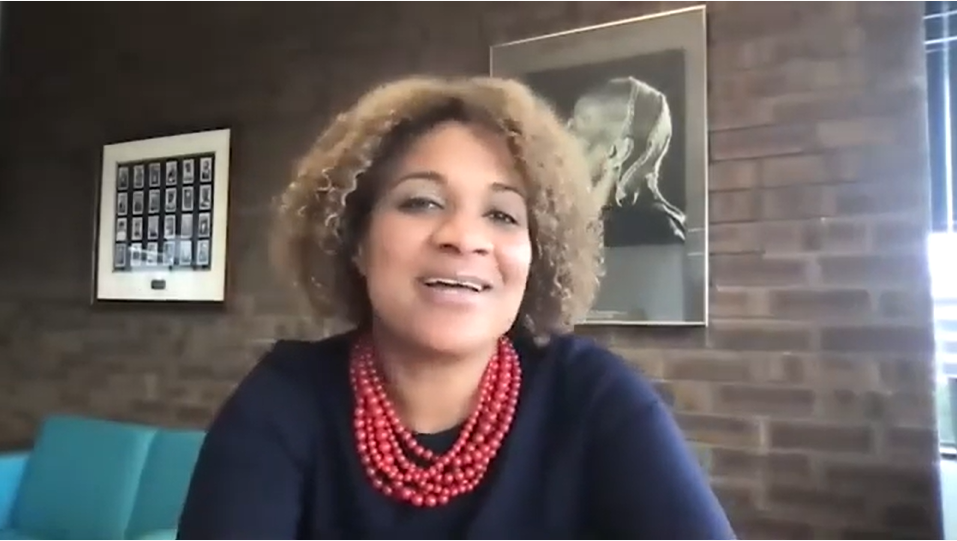
Fatima Goss Graves, President and CEO of the National Women’s Law Center, opened the guest speakers through a pre-recorded video, stating that Black women in the United States earn only 63 cents per every white, non-hispanic man — a seemingly small difference that builds gradually over time, where Black women would have to work until the age of 83 years old to be paid what a white, non-hispanic man earns by just 60 years old. In order to strive further towards pay equality, especially for Black women, we must shift the culture around us, require change in institutions, and require major shifts in the laws and policies that govern us. Graves explained that the ERA needs to be a part of the foundational documents in the U.S. Constitution to send the explicit signal that all women are equal so our laws and constitution match the reality of the laws and dignity of all U.S. individuals.

Jennifer Klein, Co-Chair and Executive Director of the White House Gender Policy Council, joined us from the White House itself, opening with the statement that women’s rights are human rights, and it is important to mark this day in the pursuit of pay equality for Black women. Klein outlined the primary workings of the Gender Policy Council, recalling its bipartisan evolution from previous initiatives to advance women’s rights to more recently working at the intersections of gender and race equity in more broad terms. At the inquiry of Carol Jenkins, Klein transitioned to discuss what is in-store today to correct the basic problem, maintaining that the implementation of the ERA; addressing pay inequity by observing (1) the pure outright discrimination, (2) the disproportionate number of women who act as primary caregivers in the home, and (3) the types of jobs women most typically perform in; and lowering all-around costs for families such as healthcare and childcare are all necessary in the fight for fairness. Klein concluded her remarks by firmly reiterating that we need to move and act today towards a comprehensive reconciliation package over the next few weeks to maintain momentum in the pursuit of equality.
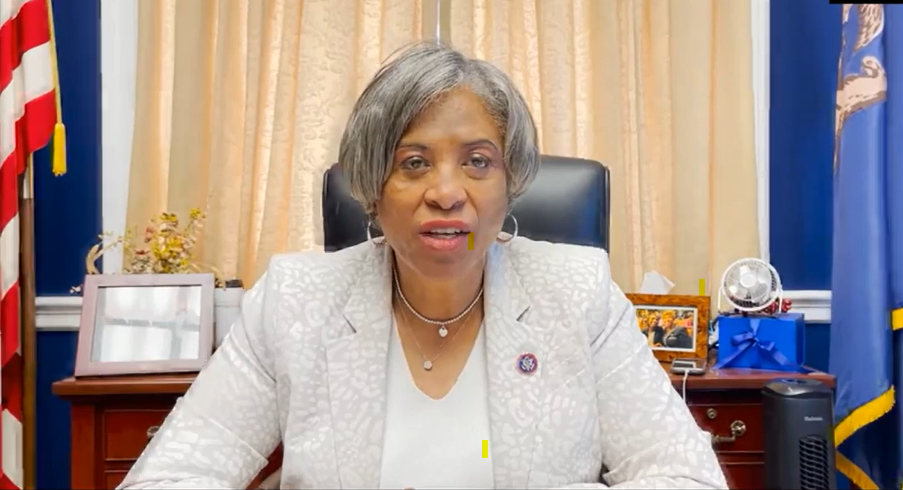
Rep. Lawrence shared comments by video, and opened with the fact that it takes Black women on average 7 additional months to earn what their white non-hispanic male counterparts earned in the previous year. She clarified that Black Women’s Equal Pay Day is not a celebration, but rather an opportunity to shine a spotlight on the economic injustices Black women face everyday, and stated that the ERA resolution passed earlier this year is a huge step in the right direction, and that we need to continue to build a country that works for all Americans, and works for men and women equally.
Carol Jenkins opened the panel discussion, introducing Aimee Allison, Monifa Bandele, Melanie Campbell, and Beverly Smith. Aimee Allison, the Founder and President of She the People and the President of Democracy in Color, began the discussion by asserting her position that we need to act for change through raising the floor. She clarified that an amazing opportunity to lift the floor for Black women in the workforce is through raising the minimum wage to $15/hour, where a multitude of problems can be addressed directly through raising wages and closing the overarching wealth gap.

Moving along a quick tangent, Carol Jenkins signaled that Chairwoman Maxine Waters was able to join the town hall live, and introduced Chairwoman Waters as the first woman and African American chair of the powerful financial services committee, doing some of the most important work for Black women who are at the bottom of the ladder. Chairwoman Waters recounted her longstanding fight for women’s rights, dating all the way back to demanding a women’s commission from President Carter himself. She created the first Congress subcommittee on diversity and inclusion to better address issues disproportionately affecting Black women, and today recognizes Black Women’s Equal Pay Day as a matter of economic, racial, and gender justice. She asserted that we need the ERA to help uproot systemic discrimination, especially as today we are closer than ever before to its implementation. Chairwoman Waters concluded by explaining that such gender and racial gaps compound in such a way that make life especially difficult for Black women, where we need to think about Black women and women of color as people at the greatest risk.

Returning to the panelist opening remarks, Monifa Bandele, CEO of TIME'S UP, stated that it was an honor to have her introduction interrupted by Chairwoman Maxine Waters. Bandele professed that we will not go back in time and will not let the pandemic serve as an excuse for inaction. She stated that because of the pay disparities and economic injustices Black women face everyday, their lifespans, physical health, and safety are adversely affected, and we now need to be doing more and working harder to advance, running twice as fast and fighting twice as hard in the pursuit of change.
Melanie Campbell, President and CEO of the National Coalition on Black Civic Participation and covener at the Black Women’s Roundtable, strongly asserted that we have to demand what we want, that the time is now to fully own our power, and that we’ve fought and voted and we need to be completely unapologetic about our demands. Right now, she says, we need to reflect on how we’ve ended up where we are today, and rally our voices and our communities to fight for us so we don’t wait 30 more years for equal rights and equal pay. She demands that this is the time to corral and make demands, even if it’s not easy, because it’s never been easy for Black Women.
Beverly Smith gave the final opening remarks of the panelists, having prepared numerous statistics to best display how the wage gap is more like a “wide chasm” that cannot be resolved without major change. She explained that Black mothers are the key breadwinners for 80% of their families, that 900,000 families headed by Black women heavily rely upon their wages, and that the time is now to close the gap for women. She asserted that we need to work collaboratively in pursuit of healthcare and education reform in addition to closing the pay gap, concluding with the observation that Black women do more with less today, and we must imagine what Black women could do with equal pay and make that reality.
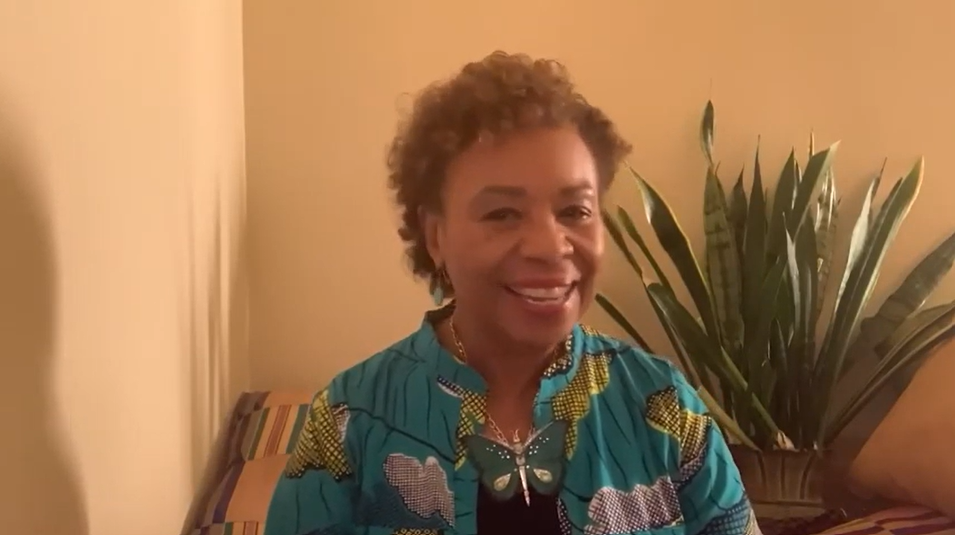
Carol Jenkins then introduced a video of Rep. Barbara Lee, who recounted the need for the ERA through observation of discrimination in work places affecting unequal wages as women of color continue to experience lower wages on all fronts, where it’s way past time to take a stand against racism and sexism. She asserted that on today of all days, we need the ERA to resolve pay discrimination, pregnancy discrimination, and domestic violence, all of which disproportionately affect Black women.
Returning to the panelist discussion, Allison reiterated the need to raise the minimum wage this year, as tangible progress we can make in the short-term in pursuit of maintaining the momentum to close wage gaps, as well as listening and utilizing the actions and voices of Black women, as they are uniquely qualified and prepared to work together to address these inequalities and discriminations. Campbell vocalized the need to protect federal voting rights as necessary in the fight for pay equity for Black women, as the entire agenda is in trouble if voting rights are not first protected. She strongly concluded that everyone needs to get involved in the fight for ERA ratification and stay involved, as we all have a voice and if we raise our voices loud enough and keep pushing, then we will move the ball and achieve our goals. Finally, Smith closed out the panelist discussion by observing that we need to ensure we elect people that represent us, that women take seats, and that we use the strength and power of voice and community, while simultaneously taking advantage of our own voices and never underestimating what just one person can influence and achieve.
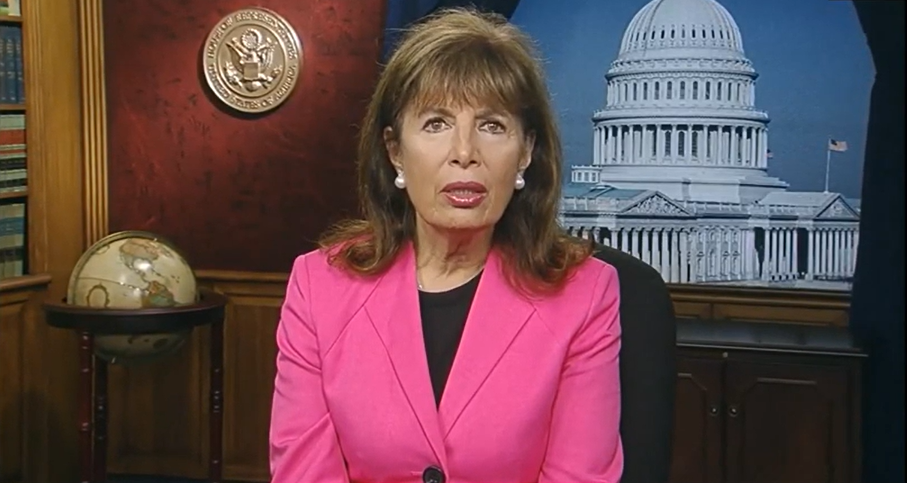
Representative Jackie Speier shared her thoughts with attendees by video, and used statistics in a powerful movement, explaining that if current trends continue, it will take Black women nearly a century to achieve equal pay, and families today are losing nearly $1,000,000 over the course of a Black woman’s working life in comparison to non-hispanic white working men. Rep. Speier stated that change today begins with the ERA, as it would change pay gap outcomes, enable the prioritization of child care and child leave, enable better equality for working women, and will finally guarantee protections against all sex discrimination within the U.S. Constitution. Enough is enough, she concluded, as the pay disparities are disgraceful, unjust, and need to be rectified.
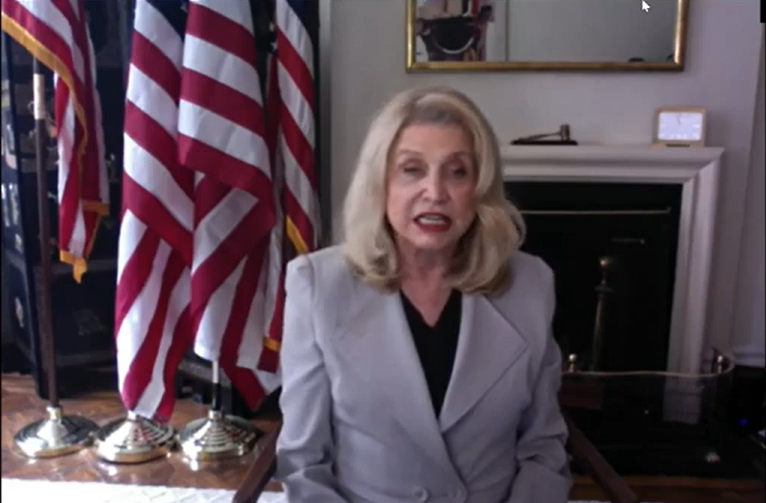
Chairwoman Carolyn Maloney closed out the town hall, reiterating that Black Women’s Equal Pay Day is not a celebration, but rather a day of observation that Black women still lack fundamental equality within our country. She continued to explain that unequal pay has a generational impact, affecting the livelihood and safety of many generations. She concluded by stating that we need to ratify the ERA and secure the constitutional right to gender equality, as we cannot address the wage gap without also addressing systemic racism and discrimination simultaneously.